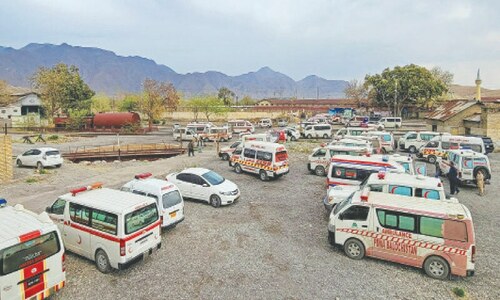MULTAN, Dec 16: As many as 72 of the 101 districts of Pakistan have been facing the problem of food insecurity. As such the country will have to increase its wheat production by 7m tons from its current level to meet the food requirements of its population.
This was stated by Mr Sahib Haq, Vulnerability Analysis and Mapping Unit programme officer of the World Food Programme, while speaking at a seminar organized by the Action aid Pakistan on wheat production and marketing here on Thursday.
He said even the agriculture-rich Multan district did not produce enough food to meet the requirements of its population. He said currently the increase in the area under wheat cultivation was not in sight and, thus, the country would have to increase the per acre productivity through better agronomic practices.
He said the per capita production of wheat had never been increased in the country since its creation 57 years ago. He said 84 per cent of the cultivable landholdings in the country were with the farmers having ownership of 12.5 acres or below. He said availability of quality inputs at cheap rates and use of technology could only improve productivity of the small farms.
Mr Haq was of the opinion that the increase in wheat support price had little affect on the small farmers because they too had to purchase wheat or its flour at market price to meet their staple food needs.
He said the wheat production of the country could also be increased by bringing the wastelands under plough. The country can harvest 5.5m tons of additional wheat only after making 25 per cent of the wasteland cultivable, he added.
Speaking on the occasion, Punjab water management director general Mushtaq Gill underlined the need of furrow-bed plantation to increase the per acre yield of wheat besides using the drip irrigation method. "We can also make judicious use of water resources by adopting the two methods," he observed.
He also stressed the need for rationalizing the cost of wheat production in the country saying India produced one kilogram of wheat with only Rs5.5 while the Pakistani grower had to spend Rs8.5 for producing the same quantity.
Action aid's Roshan Malik critically examined the 'grow more wheat' policy of the government. Growers' representatives, academicians and civil society representatives attended the seminar in a large number. The seminar adopted resolution that small growers must be consulted in the policymaking process.












































